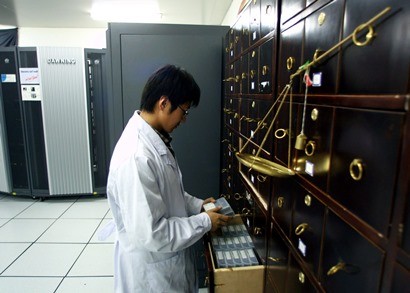The National Supercomputing Center in Guangzhou has refuted U.S. allegations about the use of the world’s fastest supercomputer to conduct nuclear simulation tests as Washington imposed new limits on high tech exports to China.
In a statement released on April 16, Thursday, the center said that the Guangzhou center is an open center and hence cannot be used for nuclear test simulation.
"The accusations against the Guangzhou center are inconsistent with the facts," the statement said.
According to a report by the Wall Street Journal, the tension between the two countries was caused by China's Tianhe-2 supercomputer, which the U.S. said was used contrary to its national security interests, forcing the U.S. government to block high-tech exports to four technical centers in China in February.
The WSJ reported on April 14, Tuesday, that Premier Li Keqiang has called on U.S. officials to drop limits on high-tech exports, as they would seek alternatives from Russia or other countries.
According to the statement, blocking the exports to the supercomputer would affect U.S.-China technology research relations and hurt U.S. companies while giving domestic chip makers an advantage.
"The U.S. Department of Commerce's export restrictions on the Guangzhou center will enormously encourage the development of the domestic chip industry and the deployment of domestic supercomputing systems," the center said in a statement.
The WSJ report said that the Tianhe-2 is powered by two Intel Corp. microprocessor chips. An Intel spokesman said last week that the company was denied an export license to supply more chips to China's supercomputing projects.
U.S. Commerce Secretary Penny Pritzker, however, said that the export control was not an impediment to U.S. trade in high technology, the report added.


